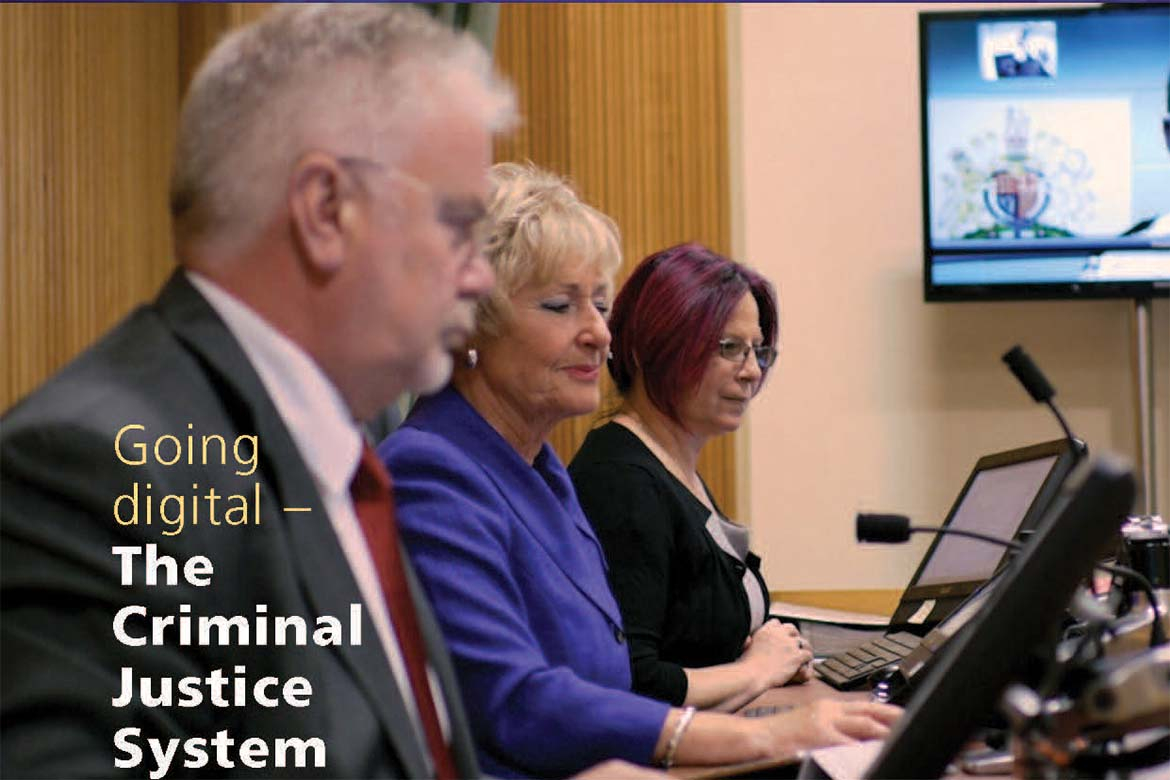Going digital –The Criminal Justice System – a once in a generation opportunity
The Criminal Justice System (CJS) is one of the major public services in the country. Across the CJS, agencies such as the police, the Crown Prosecution Service (CPS), HM Courts and Tribunal Service, prisons and National Offender Management Service (NOMS) work together every day to deliver justice.Significant progress has been made across the CJS to create a modern, efficient system from the moment a crime is committed through to the conclusion of a case in court. This will give decision makers access to accurate information that has been captured only once at the right time by the right agency. In turn, cases will be heard more quickly, meaning that victims of crime will benefit from a faster resolution to their case, saving money and delivering better value to the public purse.
Anyone going into any courtroom three years ago would have been bewildered by the stacks of files on the bench. This is changing – every day thousands of cases are being prepared and presented digitally by prosecutors in courts across England and Wales. The CPS has been at the forefront of driving this move to digital working in the CJS, made possible by the dedication of people right across the system.
CPS electronic case files
Police forces are now transferring over 90% of all case files electronically to the CPS. This case information is reviewed digitally and e-mailed to the court and defence. Our lawyers then present cases in court directly from their tablet devices – 75% of cases across the country are presented in this way, and the number is growing. In addition, all the information that the CPS gives to NOMS to prepare reports is handled digitally and we have been working with defence practitioners so that they can receive case files electronically. This enables them to work with a digital file instead of paper. This has all been achieved in the past two years.
A lot has been achieved but there is still more to do. We are currently working with our partners to develop a simplified digital prosecution file. This will help police officers to collect the right amount of evidence and ensure that the relevant details about the case are contained within a single digital file which is made available to all court users. Additionally, work is progressing to enable frontline police officers to use mobile devices to capture information and start building a case file electronically from the moment they arrive at a crime scene.
Technology in courtrooms
Wi-fi access and modern technology will be rolled out to every court room in the country. Wi-fi connectivity will help criminal justice professionals – including defence advocates, probation officers and prosecutors – access their own information management systems from court when needed.
There are also plans to introduce in-court digital presentation facilities, a better system for managing information held by the court, and greater usage of video technology for witnesses over the next 18-24 months.
Connectivity in the courtroom combined with in-court technology will enable CPS prosecutors to retrieve information in real-time and present evidence or show video footage, such as CCTV, directly to court screens from their mobile devices. Securing an early guilty plea through confronting a defendant with compelling evidence at the earliest possible opportunity could save the system time as well as money.
CJS transformation
The way in which the CJS works is changing rapidly. We are taking this once in a generation opportunity to transform the CJS and there is tremendous co-operation across the whole system to deliver this.
Ultimately digital working means less movement of paper and people around the system, and a simpler, more efficient and more effective CJS making the most use of modern technology to provide a quality service to victims, witnesses and the wider public.
Paul Whittaker CBE, CPS & HMCTS Common Platform Programme (at time of writing)


